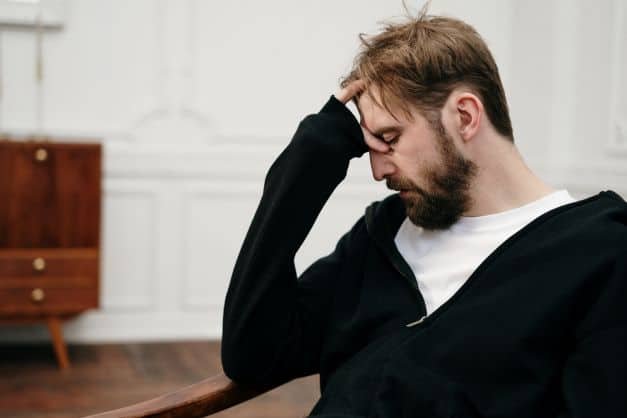How is mental health related to sleep
Sleep and mental health are intimately connected. The quality of your sleep impacts all aspects of your life. So it shouldn’t be surprising that what happens between the sheets can also affect your mental health. Poor sleep can worsen the symptoms of mental health conditions, and mental health conditions can make it more challenging to get a good night’s sleep. If you’re not getting enough quality sleep, it can take a toll on your mental health. You may have difficulty concentrating, solving problems, and making decisions. You may also experience changes in your mood and emotional state. For example, you may feel irritable, anxious, or depressed.
The tie between sleep and mental health is a two-way street. Not only can poor sleep lead to mental health problems, but mental health problems also lead to poor sleep. Mental health conditions such as anxiety, depression, and post-traumatic stress disorder (PTSD) can make getting a good night’s sleep more challenging.
How lack of sleep can lead to mental health problems
There are a few ways that lack of sleep can lead to mental health problems. One is by affecting the brain’s ability to regulate emotions. When you’re tired, you may have trouble controlling your emotions. This can lead to feeling more irritable, anxious, or depressed. Lack of sleep can also interfere with the brain’s ability to process information. So when you’re tired, you may have trouble concentrating, solving problems, and making decisions. Not getting enough sleep can lead to changes in hormone levels. These changes can affect your mood and make you more likely to experience anxiety and depression.
Your brain needs sleep to work properly. When you’re sleep-deprived, your brain can’t function at its best. You’ve probably known this since you were a kid. When you didn’t get enough sleep, you couldn’t focus in school and felt grumpy. As an adult, you need rest just as much as a child. But sometimes, it’s hard to get enough. You might have a new baby at home or be working long hours. Maybe you can’t fall asleep because you’re anxious about something. Life gets in the way.
How mental health conditions can affect sleep
Mental health conditions and medications used to treat them can make getting a good night’s sleep challenging. Conditions such as anxiety can make it hard to fall asleep. You may be worrying about things that happened during the day or things that might happen in the future. This can keep you up at night. Depression can also make it hard to sleep. You may be feeling down and have trouble falling asleep or staying asleep. You may also sleep more than usual when you’re depressed.
PTSD can cause nightmares and make falling or staying asleep hard. PTSD can also make you feel on edge during the day, making it hard to relax at night. These conditions can make it hard to get a good night’s sleep. And when you don’t get enough quality sleep, it can worsen the symptoms of mental health conditions. It can also make it harder to manage these conditions.
The importance of maintaining good sleep habits
Good sleep habits are essential for maintaining mental health. If your sleep patterns are off, it can make the symptoms of mental health conditions worse. It can also make it more challenging to manage these conditions. If you struggle mentally or emotionally, pay attention to your sleep habits. Make sure you’re getting enough quality sleep. This can help you feel better and make it easier to manage your mental health.
Your sleep habits are just as crucial as your diet and exercise habits. So ensure you’re doing everything possible to get a good night’s sleep. It would be best if you found what works for you. This may mean trying a few different things before finding what works best. You may need to experiment with different sleep habits to find what works. That may include buying a new mattress, using a noise machine, or trying relaxation techniques. The habits you develop now will play a significant role in your mental health later in life. So ensure you’re doing everything possible to get a good night’s sleep.
Tips for getting a good night’s sleep
Now you know why and how sleep affects your mental health, it’s time for some tips on how to get a good night’s sleep.
- Follow a routine – Go to bed at the same time every night and get up at the same time every morning, even on weekends. This will help to regulate your body’s natural sleep-wake cycle. A routine can also help you wind down before bed. You may want to take a warm bath, read a book, or listen to calming music. What you’re trying to do is create a signal to your body that it’s time to sleep. Your body will then start to prepare for sleep. You must stick to your routine as much as possible. That means no late nights out or sleeping in on weekends. If you do, it will throw off your body’s sleep-wake cycle and make it harder to fall asleep at night.
- Keep a cool, dark, and quiet bedroom – Your bedroom should be cool, dark, and quiet. These conditions are ideal for sleep. If you can’t control the temperature, try using a fan or air conditioner to cool down the room. Use an eye mask or black-out curtains if the light is a problem. And if noise is an issue, try using a white noise machine or earplugs. Many people have problems because their bedrooms are not conducive to sleep. If your bedroom is too bright, loud, or warm, it will be harder to fall asleep.
- Limit screen time before bed – It’s important to limit it. This means no TVs, laptops, tablets, or phones. The light from screens can interfere with sleep. If you must use a screen before bed, try using night mode or setting a timer for how long you can be on your device. The problem with the light from screens is that it can interfere with the body’s natural sleep-wake cycle. When you’re exposed to light, it tells your body that it’s time to be awake. So if you’re looking at screens before bed, it can make it harder to fall asleep. Turn everything off and lay in bed for 20-30 minutes before falling asleep. This will give your body time to wind down and prepare for sleep.
- Get up and move around every few hours – It’s essential to get up and move about every few hours. This helps to keep your body active and prevents stiffness. Try to take a walk every couple of hours. If you can’t get outside, try walking around your house or office. Exercise will help drain your energy and make it easier to sleep at night. It will also help to improve your overall health.
- Avoid caffeine and alcohol – It will help if you avoid caffeine and alcohol before bed. Caffeine can make it hard to fall asleep, and alcohol can make you wake up at night. If you drink caffeine, try limiting it to earlier in the day. And if you drink alcohol, try to have it with a meal and not right before bed. Both caffeine and alcohol can interfere with sleep. So it’s best to avoid them before bed.
- Practice relaxation techniques – Several relaxation techniques can help you fall asleep. These include progressive muscle relaxation, deep breathing, and visualization. Try to practice these techniques for at least 10 minutes before bed. The goal is to focus on your breathing and muscle relaxation. This will help to clear your mind and prepare your body for sleep.
- Make sure your bed is comfortable – It’s essential to have a comfortable bed that you can sleep in. If your bed is too soft or hard, it can make it harder to fall asleep. Try out different beds and mattresses until you find one that is comfortable. You should be aware that different types of mattresses are available, so you may need to try a few before finding the right one. A few examples of mattress types are memory foam, latex, innerspring, and adjustable. You might also consider upgrading your pillow. If you sleep on your stomach, you might need a firmer pillow. If you sleep on your side, you might need a softer pillow.

When to seek help for sleep or mental health problems
Knowing when to seek help is essential. If you’re struggling to sleep, it might signify a bigger problem.
If you’re experiencing any of the following, it’s essential to seek help:
- You’re not getting enough sleep (less than 6 hours a night)
- You’re struggling to fall asleep or stay asleep
- You’re waking up feeling tired
- You’re struggling to concentrate during the day
- You’re experiencing changes in mood or behaviour
If you’re struggling to sleep, you must talk to your doctor. They can help you identify the cause of your sleep problems and find a solution.
- Your sleep habits – You’ll need to give your doctor a complete picture of your sleep habits. This includes how often you wake up during the night, how long it takes you to fall asleep, and how many hours you sleep each night. Here are some things that you should discuss with your doctor:
- Your medical history – You’ll also need to share your medical history with your doctor. This includes any medical conditions that you have and any medications that you’re taking.
- Your mental health – It’s essential to discuss it with your doctor. This includes any anxiety, stress, or depression that you’re experiencing.
- Your lifestyle – Your doctor will also want to know about your lifestyle. This includes your diet, exercise habits, and how much caffeine you consume each day.
- Your family history – You must let your doctor know if sleep problems run in your family. This will help them to understand your sleep problems better. Your doctor will suggest you make changes or visit a sleep specialist if necessary. A sleep specialist is a doctor who specializes in sleep disorders. They can help you identify the cause of your sleep problems and find a solution.
If you’re struggling to sleep, there are several things that you can do to improve your sleep habits. But if you’re still struggling after making changes, it’s essential to seek help from your doctor. They can help you find a solution that works for you.
Your mental health is something you can’t ignore
What do people do when experiencing mental health issues due to problems sleeping? Usually, people turn to caffeine, drugs, or alcohol to ease their symptoms. But they don’t realize that these substances can worsen their sleep problems. If you’re experiencing mental health issues, seeking help from a doctor or mental health professional is essential. They can help you identify the cause of your mental health problems and find a solution.
It’s also important to remember that your mental health is just as important as your physical health. You should never ignore your mental health or try to tough it out. If you’re struggling, seek help from a professional.
Too much or too little sleep will have a significant impact on your mental health
Your life is so intertwined with your mental health that it impacts everything you do. Not getting enough or too much sleep can negatively affect your mental health. Don’t take this topic lightly. Your mental health should be a priority. Ensure you sleep well every night and seek help if you’re struggling with your mental health.
If you’re struggling to sleep, get a new mattress, and if that doesn’t help, modify your life; if that doesn’t do the trick, it’s time to get professional help. Your mental health is the essence of who you are and impacts everything you do, so don’t treat it lightly. Instead, get the help you need to get your mental health back on track.



